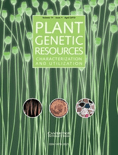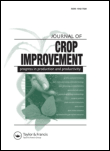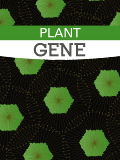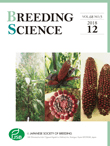
Plant Genetic Resources-Characterization and Utilization
metrics 2024
Exploring Genetic Treasures for Tomorrow's Crops
Introduction
Plant Genetic Resources-Characterization and Utilization, published by Cambridge University Press, is an esteemed journal in the field of plant science, particularly focusing on the genetic resources crucial for agriculture and crop improvement. With an ISSN of 1479-2621 and an E-ISSN of 1479-263X, this journal serves as a vital platform for researchers aiming to advance the understanding of genetic variation and its applications in plant breeding and conservation. The journal boasts an impressive positioning within its categories, achieving Q2 in Agronomy and Crop Science, Q4 in Genetics, and Q3 in Plant Science as of 2023, which reflects its commitment to publishing high-quality research. Although primarily subscription-based, the journal is accessible to institutions and individuals seeking to stay at the forefront of innovations in plant genetic resources. Researchers, professionals, and students alike will find valuable insights into the latest methodologies, findings, and implications for sustainable agriculture and ecosystem management in its pages. As a key resource for advancing knowledge and practical applications in its field, Plant Genetic Resources-Characterization and Utilization continues to significantly contribute to the scientific community and the understanding of plant biodiversity.
Metrics 2024
 0.33
0.33 1.20
1.20 1.20
1.20 40
40Metrics History
Rank 2024
Scopus
IF (Web Of Science)
JCI (Web Of Science)
Quartile History
Similar Journals

GENETIC RESOURCES AND CROP EVOLUTION
Unlocking the Secrets of Crop Diversity and EvolutionGENETIC RESOURCES AND CROP EVOLUTION is a leading academic journal dedicated to the exploration and advancement of genetic resources in agriculture, evolutionary biology, and plant science. Published by Springer in the Netherlands since 1992, this journal aims to foster a greater understanding of the genetic basis of crop evolution and diversity. With a robust impact reflected in its Q2 status in multiple categories, including Agronomy, Ecology, and Plant Science, it ranks impressively within the top quartiles of its fields. As of 2023, it continues to be an essential resource for researchers, professionals, and students who seek to enhance sustainable crop production and biodiversity conservation through innovative genetic methodologies. The journal promotes high-quality, peer-reviewed research that contributes valuable insights into the genetic adaptation of crops in response to environmental changes. While the journal is not open access, its esteemed reputation ensures that the insights it provides reach a wide audience eager to address some of today's most pressing agricultural challenges.

Journal of Crop Improvement
Enhancing global food security through rigorous research.The Journal of Crop Improvement, published by Taylor & Francis Inc, is an esteemed platform dedicated to advancing the field of agronomy and crop science. With an ISSN of 1542-7528 and an E-ISSN of 1542-7536, this journal boasts a commendable reputation, reflected in its 2023 quartile rankings—notably, Q2 in Agronomy and Crop Science and Q2 in Plant Science, positioning it among the leading publications within its category. The journal encompasses a wide range of topics related to crop enhancement, sustainable agriculture, and genetic advancements, catering to the needs of researchers, industry professionals, and students alike. Although it currently does not provide open access, the Journal of Crop Improvement plays a crucial role in disseminating pioneering research aimed at improving crop resilience, yield, and quality. By maintaining a focus on innovative studies and empirical findings, the journal supports the global agricultural community in addressing the challenges posed by climate change and food security.

Revista Caatinga
Fostering Collaboration in Agricultural and Biological ResearchRevista Caatinga is a premier open-access journal published by Universidade Federal Rural do Semi-Árido (UFERSA), dedicated to the dissemination of significant research within the field of Agricultural and Biological Sciences. Since its inception in 2006, the journal has aimed to bridge the knowledge gap in various aspects of agricultural practices and biological phenomena, making vital contributions to the scientific community. With its publications indexed in Scopus and holding an impressive Q2 categorization in the competitive landscape of agricultural sciences, the journal ranks within the top half of its category (100/221), demonstrating a commitment to quality scholarship. The journal is based in Brazil and covers a wide array of topics relevant to both local and global agricultural challenges. By fostering open access, Revista Caatinga ensures that vital research is available to a broad audience, promoting knowledge sharing and collaboration among researchers, practitioners, and students around the world.

AUSTRALASIAN PLANT PATHOLOGY
Exploring innovative solutions for plant disease management.Australasian Plant Pathology, published by Springer, is a leading journal in the field of plant science that focuses on the study of plant diseases and their management across the Australasian region. With an established history since 1978, the journal aims to provide a platform for high-quality research that enhances our understanding of plant pathology, prevention strategies, and sustainable management practices. With an impact factor that reflects its significance in the scientific community and its Q3 quartile ranking in 2023 among plant science journals, it serves as a vital resource for researchers, professionals, and students alike. Although it does not have Open Access options, the journal ensures that its content, which spans a wide spectrum of plant pathology topics, remains accessible to a diverse audience globally. With a commitment to advancing knowledge in this crucial area of study, Australasian Plant Pathology continues to play an essential role in addressing the challenges posed by plant diseases in a changing environment.

Plant Gene
Unraveling the Secrets of Plant ResiliencePlant Gene is an esteemed academic journal dedicated to the comprehensive study of plant genetics, genomics, and biotechnology. Published by Elsevier, this journal operates from its base in the Netherlands and has made significant strides since its inception in 2015, with a converged year span extending until 2024. As an integral resource in the field, Plant Gene is categorized in the Q2 quartile for Plant Science and Q3 for Biochemistry, Biotechnology, and Genetics as per the 2023 evaluations, reflecting its growing influence and quality of research. With an impactful presence in Scopus rankings—positioned at #145 in Plant Science—this journal serves as a platform for presenting innovative findings and advancing knowledge in plant science. Researchers, professionals, and students will find access to cutting-edge research articles that not only drive the scientific community forward but also offer invaluable insights into the genetic mechanisms underpinning plant development and resilience. While the journal currently operates under a subscription-based model, it aims to broaden accessibility and foster a diverse range of scholarly discussions in the ever-evolving field of plant genetics.

PLANTA
Unveiling the secrets of plant evolution and biochemistry.PLANTA, published by SPRINGER, stands as a pivotal journal in the field of plant sciences and genetics, known for its rigorous peer-reviewed research that has influenced the advancement of botanical science since its inception in 1925. With an impressive trajectory of convergence from the years 1925 to 1945, and again from 1947 to 2024, this journal maintains a strong reputation, currently categorized in the prestigious Q1 tier of Plant Science and Q2 tier in Genetics as of 2023. The journal is recognized for its high impact, ranked #64 out of 516 in Plant Science by Scopus, representing the top 87th percentile within its category, while also securing a strong position in Genetics with a #92 rank. The journal serves as a critical resource for researchers, professionals, and students who are eager to explore the complex genetics, biochemistry, and evolutionary biology of plants. Though primarily subscription-based, the quality of the research published in PLANTA makes it an essential reading for anyone serious about advancing their knowledge and understanding of plant sciences.

BREEDING SCIENCE
Exploring the Intersection of Science and SustainabilityBREEDING SCIENCE is a premier journal published by the Japanese Society of Breeding, dedicated to the advancement of knowledge in the disciplines of agronomy, plant science, and genetics. Established in 1993, this influential publication has consistently contributed to the global research community, showcasing high-quality studies that intersect innovative breeding techniques with pressing agricultural challenges. With an esteemed Scopus rank placing it in the top quartile of Agronomy and Crop Science and the second quartile in Plant Science, BREEDING SCIENCE is essential reading for researchers, professionals, and students alike. The journal's reach and rigor are evidenced by its significant presence in leading academic databases, providing insights and advancements that are critical for improved crop production and sustainable practices. Although it does not currently offer open access options, the depth and relevance of its content ensure that it remains a vital resource for those committed to exploring the evolution and impact of breeding science. For further information, readers are encouraged to connect directly with the journal via its administrative office located at the University of Tokyo's Graduate School of Agricultural and Life Sciences.

Crop Breeding and Applied Biotechnology
Advancing agricultural innovation through cutting-edge research.Crop Breeding and Applied Biotechnology is a prominent open-access journal published by the Brazilian Society of Plant Breeding that has been dedicated to advancing research in the fields of Agronomy, Crop Science, and Biotechnology since its inception in 2001. With an ISSN of 1984-7033 and an E-ISSN of 1518-7853, this journal is widely recognized within the academic community, evidenced by its Q2 ranking in Agronomy and Crop Science and Q3 ranking in Biotechnology for 2023. The journal serves as a vital platform for researchers, professionals, and students, facilitating the exchange of innovative ideas and studies in crop breeding techniques, genetic improvements, and applied biotechnological advancements. Housed at the Federal University of Viçosa, Brazil, it not only enhances global collaboration among scientists but also contributes to the sustainable development of agricultural practices. As a peer-reviewed journal with a significant indexing presence, it ensures high visibility and accessibility of quality research to the global scientific community.

JOURNAL OF PLANT BIOCHEMISTRY AND BIOTECHNOLOGY
Unlocking the Secrets of Plant Biology for Sustainable SolutionsJOURNAL OF PLANT BIOCHEMISTRY AND BIOTECHNOLOGY, published by SPRINGER INDIA, is a leading publication dedicated to advancing research in the fields of plant biochemistry, biotechnology, agronomy, and crop science. With an ISSN of 0971-7811 and E-ISSN 0974-1275, the journal encompasses a wide range of studies aimed at enhancing our understanding of plant biological processes and their applications in agriculture and biotechnology. It has achieved a noteworthy Q2 ranking in Agronomy and Crop Science and Plant Science, as well as a Q3 ranking in Biotechnology, reflecting its quality and relevance in contemporary research. Notably, the journal ranks #166 in Plant Science and #133 in Agronomy, both falling in the top 67th percentile. With a rich history spanning from 1992 to 2024, the journal is committed to providing open access to innovative research findings that bridge the gap between laboratory discoveries and their practical applications in sustainable agriculture. Researchers, professionals, and students will find a wealth of knowledge and inspiration to advance their work in the dynamic field of plant sciences at this esteemed journal.

Revista Fitotecnia Mexicana
Exploring the Depths of Plant Science and GeneticsRevista Fitotecnia Mexicana is a prominent academic journal published by the SOC MEXICANA FITOGENETICA, dedicated to advancing knowledge in the fields of agronomy, crop science, genetics, horticulture, and plant science. With its establishment dating back to 2007 and currently running through 2024, this journal serves as an important platform for researchers, professionals, and academic institutions interested in plant genetic resources and agricultural innovations. Although it holds a Q4 quartile ranking in various categories and is positioned within the lower percentiles in Scopus rankings, it provides crucial insights and opportunities for emerging ideas and local research initiatives. Based in Mexico, and with its indexed ISSN 0187-7380, the journal plays an important role in stemming from the rich agricultural heritage of the region. The lack of open access options underscores the depth of curated content provided, making it a valuable resource for professionals seeking to expand their expertise in the sector.